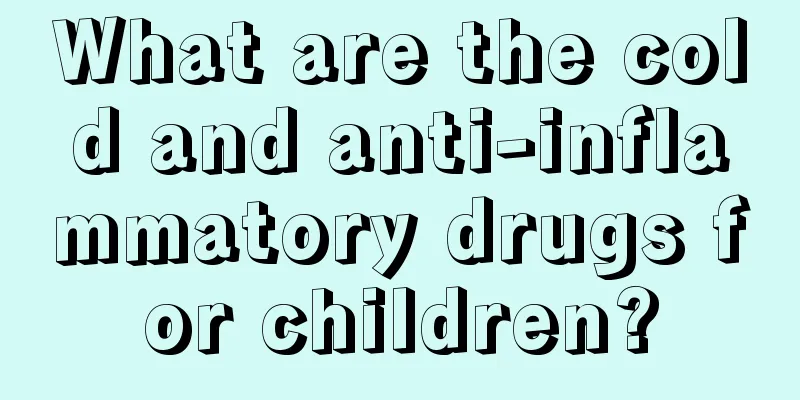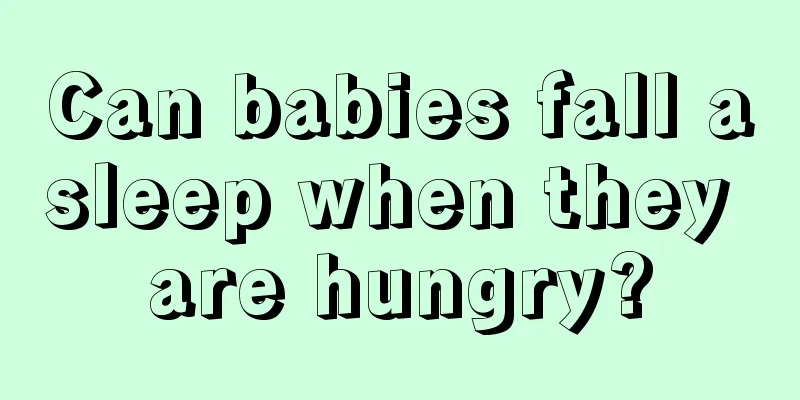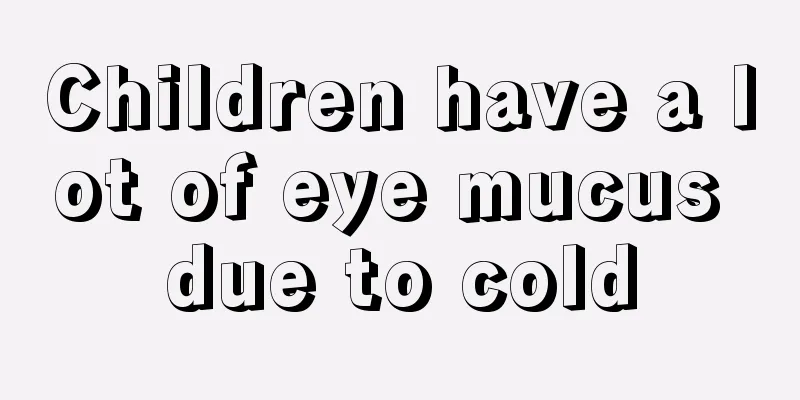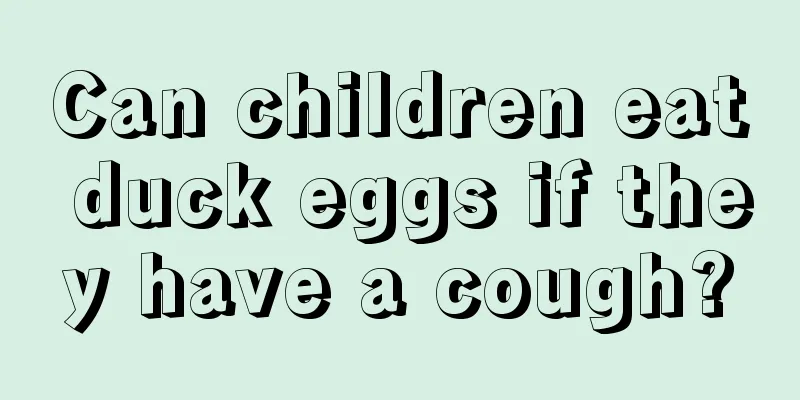Symptoms and treatment of dysentery in children
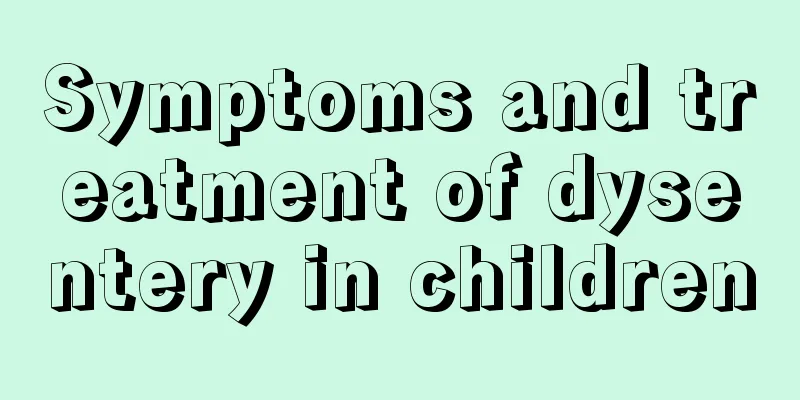
|
Dysentery is a common gastrointestinal disease in the human body. People who have suffered from dysentery know that dysentery not only causes diarrhea, but if you have diarrhea while at work or in class, it is a very troublesome thing and will also make people feel very depressed. Moreover, dysentery often occurs not only in adults, but also in children. Children's dysentery is generally more serious than that in adults. Due to children's physical reasons, medications cannot be used indiscriminately. So what are the treatments for dysentery in children? Symptoms of dysentery in children When infants and young children suffer from bacillary dysentery, as their body temperature rises, they may become listless, drowsy, irritable, or even have convulsions. They may also cry and become restless due to abdominal pain before defecation. Symptoms of dysentery are often atypical, manifested by intestinal dysfunction, dyspeptic stools, and straining during defecation or facial swelling indicating tenesmus. What to do with dysentery in children 1. Isolate the sick child and treat him under the guidance of a doctor. 2. The air in the ward should be fresh and the child's clothes should be washed and dried immediately. 3. Rest in bed and take medicine as instructed by the doctor. The treatment must be thorough. After the symptoms disappear, do not stop taking the medicine without the doctor's instructions to avoid recurrence of dysentery or transformation into chronic dysentery. 4. When the child has a high fever, he or she should take some antipyretics under the guidance of a doctor. When the fever exceeds 39.5℃, physical cooling measures should be taken. 5. Let the child drink more water, preferably some sugar and salt water, and eat some easily digestible food. 6. Closely observe changes in the child's condition. If you find that the child is listless, pale, or has cold limbs, it may be toxic dysentery and you should seek medical treatment immediately. How to prevent dysentery in children Dysentery is a common intestinal disease caused by eating food or drinking water contaminated with feces of Shigella dysenteriae. Therefore, in order to prevent the occurrence of bacterial diseases, we must pay attention to food hygiene. Note that the food must be fresh. Do not eat spoiled, rotten, or overnight food. Cooked and raw food should not be stored in the refrigerator for too long, and cooked food should be reheated. Raw food and fruits should be washed thoroughly, and it is best to scald them with boiling water. It is particularly important to note that cold drinks play an important role in the spread of dysentery. It is impossible to prevent children from drinking cold drinks in summer. The key is to pay attention to buying products of good brands and not drink drinks from street stalls. It is extremely unhygienic to eat popsicles and ice cream on the street, especially when it is windy, the dust that falls on the popsicles often carries germs. |
<<: What should I do if my 2-year-old baby is nearsighted?
>>: Tips for treating fishbone stuck in children's throats
Recommend
Why do children have black teeth?
Children's teeth are relatively fragile. If y...
One month old baby laughs while sleeping
We all know that newborn babies sleep when they a...
Causes and countermeasures of dry stool in newborns
Newborns often have dry stools, do you know what ...
Complete guide to venipuncture techniques in children
Intravenous puncture in children will not have an...
What is the cause of the baby's heart noise?
If a child has this kind of heart noise, it may c...
At what age do boys begin to have nocturnal emissions?
Nocturnal emission is something that happens to b...
What should I do if my child has a runny nose due to heat?
When seeing their children with a runny nose, mos...
Why does my baby have so much eye mucus in his eyes?
The human body needs to eat something every day. ...
What's wrong with children's red corners of mouth?
Sometimes we will get bubbles at the corners of o...
How to increase children's immunity
For children, the body's immune ability is ve...
What causes nosebleeds in children at night?
Nosebleed is a serious disease that endangers chi...
Understanding Erythema Nodosum in Children
What many parents are most concerned about is the...
What to do if your child has bloating and vomiting
Children's gastrointestinal development is no...
When do children start losing teeth?
Children's tooth replacement is actually a pr...
What to do if a child has a high fever?
Children's physical health is very easily aff...


